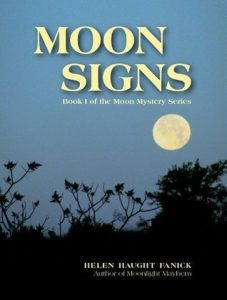Title: ‘GAPÔ
Author: Lualhati Bautista
First published January 1, 1988
152 pages, Mass Market Paperback
ISBN: 9789711901158 (ISBN10: 9711901153)
Rating: 4.13
Overview
In ‘GAPÔ by Lualhati Bautista, the injustices committed by American soldiers against Filipinos are brought to light. From a security guard killing a Filipino and being protected by the American Department of Defense to a Filipino miner being imprisoned for stepping onto his own land, these stories showcase the power dynamic between the two nations.
Even innocent civilians like a young boy, a fisherman, and a misidentified man are not spared from the violence. Despite the belief that nothing can be done, the truth is that Filipinos can fight back for their land and their people.
This eye-opening book sheds light on the harsh realities faced by Filipinos and the need for justice.
About the Author
Lualhati Bautista was born on December 2, 1945 in Tondo, Manila to Esteban Bautista and Gloria Torres. She attended public schools for both elementary and high school, graduating from Emilio Jacinto Elementary School in 1958 and Torres High School in 1962.
Bautista pursued Journalism at Lyceum of the Philippines, but dropped out to focus on her passion for writing. Her parents, who were composers and poets, greatly influenced her writing.
Her first stories were published in Liwayway magazine. Bautista served as vice-president of the Screenwriters Guild of the Philippines and chair of the Kapisanan ng mga Manunulat ng Nobelang Popular.
In 1986, she was named a national fellow for fiction of the University of the Philippines Creative Writing Center. Though she used to participate in writing contests, she now serves as a judge.
Bautista is a renowned author, particularly for her award-winning novels Gapo (1980), Dekada ’70 (1983), and Bata, Bata, Pa’no Ka Ginawa? (1984), all of which won the grand prize in the Don Carlos Palanca Memorial Awards for Literature.
She has also written numerous poems and short stories that have been compiled in an anthology. In addition to her work as a novelist, Bautista is also a screenplay writer for both movies and television shows.
Her first screenplay, Sakada (Seasonal Sugarcane Workers), was written in 1972 and exposed the struggles of Filipino peasants. The script was even confiscated by the military.
Bautista has received recognition from the Don Carlos Palanca Memorial Awards for Literature and the Surian ng Wikang Pambansa in 1987 for her work.
Bautista has won several awards for her screenplays, including Bulaklak sa City Jail (1984), Kung Mahawi Man ang Ulap (1984), and Sex Object (1985). She has received recognition from the Metro Manila Film Festival, Film Academy Awards, Star Awards, FAMAS, and URIAN awards.
Two of her short stories, Tatlong Kuwento ng Buhay ni Julian Candelabra (Three Stories in the Life of Juan Candelabra) and Buwan, Buwan, Hulugan mo Ako ng Sundang (Moon, Moon, Drop Me a Sword), also won the Carlos Palanca Memorial Awards for Literature.
Bautista’s television dramas include Daga sa Timba ng Tubig (1975) and Isang Kabanata sa Libro ng Buhay ni Leilani Cruzaldo (1987), which won best drama story for television from the Catholic Mass Media Awards. In 2004, Bautista was honored at the 8th Annual Lecture on Vernacular Literature by Women by the Ateneo Library of Women’s Writings (ALIWW).
Overall, Bautista is a highly respected and sought-after writer in the Philippines.
Editoral Review
In “GAPÔ”, Lualhati Bautista masterfully presents the intricacies of love, power, and societal norms in the Philippines during the 1980s. Bautista, an award-winning writer and feminist activist, is known for her raw and uncompromising portrayal of the Filipino experience.
The novel, first published in 1988, has become a staple in Filipino literature and an essential reading for anyone seeking to understand the complexities of Philippine culture and history. Set in the town of Gapô, a military base in the Philippines heavily influenced by the American presence, the novel follows the lives of the inhabitants and the power dynamics between the military and the locals.
The story centers on the forbidden love affair between Istak and Sabel, a sex worker in Gapô. As their relationship blooms, they find themselves caught in the crossfire between the military and the civilians.
Along the way, the novel explores the themes of corruption, colonialism, and the struggle for self-determination. Bautista’s attention to detail and character development is exceptional.
The vivid portrayal of Gapô as a town struggling to assert its own identity amidst outside influences is a testament to her skill as a writer. Istak and Sabel, the main characters, are complex and deeply flawed, yet their journey towards freedom and self-discovery is both compelling and heartwarming.
Most importantly, the book delves into the harrowing experiences of sex workers, exploring the power dynamics and exploitative nature of the industry. The novel also carries significant cultural and historical relevance.
The American presence in the Philippines during the 1980s, as well as the subsequent struggles for independence and national identity, shaped the country’s political and social landscape for years to come. Bautista’s commentary on these issues is both timely and timeless, providing readers with a deep understanding of the cultural and political context during that time period.
Despite its numerous strengths, one weakness of “GAPÔ” is the pacing. The novel occasionally drags, especially during the exposition.
However, this issue is minor, and Bautista’s masterful writing more than compensates for it. I highly recommend “GAPÔ” for anyone interested in Filipino literature, feminist literature, or historical fiction.
The novel’s exploration of love, power, and self-determination is an important lesson for readers of all backgrounds. With its cultural significance and impeccable writing, “GAPÔ” is a must-read.
I give it a rating of 4.5 out of 5 stars.



